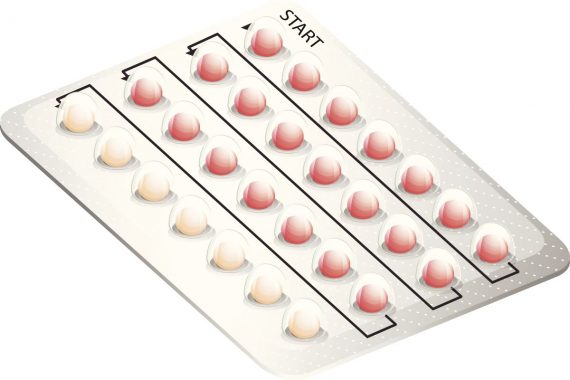Long-term desogestrel associated with small increased risk of meningioma

Long-term use of the progestogen-only desogestrel contraceptive pill is linked to small increased brain tumour risk, researchers have concluded.
However, the study of more than 92,000 patients found the risk was much lower than some other progestogens and disappeared one year after stopping treatment.
The French researchers noted that prolonged use of several progestogens had been gradually recognised as a risk factor for intracranial meningioma.
But studies had not reported on desogestrel and levonorgestrel, either alone or combined with oestrogen, despite their wide use. Desogestrel alone accounts for 90% of progestogen only pills sold in France and the UK, they noted in the BMJ.
To examine further they looked at the health records of 8391 women in France who had needed surgery for intracranial meningioma in 2020-23 and ten times as many case-matched controls.
They examined short-term, defined as less than a year, and prolonged use of oral contraceptives containing desogestrel 75µg, levonorgestrel 30µg, or levonorgestrel 50-150 µg combined with oestrogen.
The analysis showed that taking desogestrel continuously for more than five years is associated with a small increased risk of intracranial meningioma.
It meant for 67,000 women taking desogestrel, one might need surgery for meningioma and the risk disappeared one year after stopping treatment, they reported.
They calculated that it would mean 17,000 women taking it for one to need surgery for meningioma if current use was for more than five years.
There was no increased risk for shorter durations or with levonorgestrel, alone or combined with oestrogen, regardless of duration of use, they added.
Excess risk was greater in women older than 45 years, those with a meningioma in the front or middle of the skull, and after prolonged use of one of the known high-risk progestogens before they took desogestrel.
Two oral pills, medrogestone and promegestone, were also associated with a 4.1 and 2.7-fold greater risk of meningioma respectively.
Dr Mangesh Thorat, honorary reader in Wolfson Institute of Population Health at the Queen Mary University of London, said the results do not give any reasons for women using progestogens to panic.
‘This large study using French national database is second in the series of studies by the same group, addressing some of the limitations of their previous study published last year.
‘It shows association between taking a certain progestogen (desogestrel) continuously for more than five years and meningioma risk, however, the magnitude of increase in the risk is small, and short-term use is not associated with increased risk and that the excess risk ceases to exist once the use is stopped for more than a year.’
He added: ‘Importantly, this study also shows that many progestogens, for example commonly used tablets like Microgynon or the morning after pill to be completely safe, without any increase in the risk of meningioma.’
Visit Pulse Reference for details on 140 symptoms, including easily searchable symptoms and categories, offering you a free platform to check symptoms and receive potential diagnoses during consultations.













